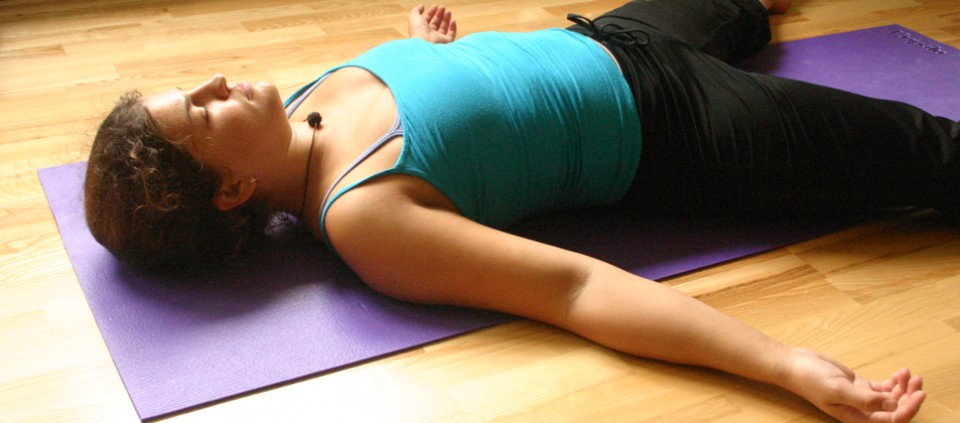Yoga Nidra, the All-Natural Sleep Aid

Sleep. While it seems about as natural as breathing, for 50 to 70 million Americans, it isn’t. Intermittent and chronic sleep problems are rampant and can potentially affect alertness, safety, and health. For some, medications or a medical condition could be interfering with sleep; for others, too much sugar or caffeine could be the culprit.
One of the more common reasons for sleep problems, according to Vandita Kate Marchesiello, Kripalu Yoga teacher and Kripalu R&R faculty member, is that our minds are full of thoughts that put the nervous system, respiratory system—really, all of the systems that run our bodies—on high alert. “We’re often worried, fearful, or regretting something,” Vandita says. “And, in the quiet of the night, these thoughts and feelings often creep in.”
But, according to Vandita, when mental chatter is replaced with more calming and soothing thoughts and images, the body responds by relaxing the muscles, slowing the heart rate, lowering blood pressure, and generally unwinding.
Her R&R workshop Rest and Unwind focuses on the practice of yoga nidra, which means “yogic sleep” or “sleep with awareness.” As we do gentle stretches on our mats in preparation for the practice, Vandita encourages us to remain in the moment by returning to the breath and body each time the mind begins to wander. We practice systematic relaxation of the muscles, encouraging both the body and mind to let go.
“During the experience,” Vandita says, “I guide practitioners to [observe] sensations in the body without judging or labeling them. That is compassionate self-awareness.”
She asks us to visualize a favorite place in nature—a place where we were in awe of the beauty surrounding us. “It might be the beach, the mountains, a stream in the woods, or a garden you’ve visited,” she says. She asks us to imagine lying on our backs, looking up at the sky as the clouds float slowly by.
When practiced regularly, yoga nidra offers physiological benefits beyond sleep. “The body comes into what’s known as homeostasis,” Vandita explains. “The heart and respiratory rates lower, which can eventually lower blood pressure.” Deep relaxation can also help people dealing with chronic pain or anxiety.
Needless to say, yoga nidra is far more sleep-inducing than watching the news or staring at a computer screen before bedtime. Vandita says that 15 to 30 minutes of practice set the stage for a more restful night’s sleep.
Find out about programs with Vandita Kate Marchesiello at Kripalu.
© Kripalu Center for Yoga & Health. All rights reserved. To request permission to reprint, please e-mail editor@kripalu.org.
Vandita Kate Marchesiello, E-RYT 500, is a Kripalu Legacy Faculty member and creator of the best-selling CDs Transform, Relax, and Rejuvenate; Yoga with Vandita; and Vandita Chants.
Full Bio and Programs